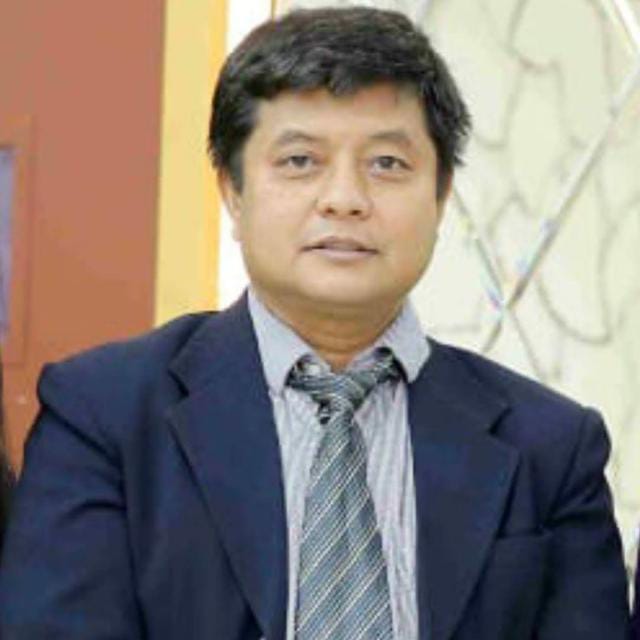Editorial
Upholding Democracy to safeguard SC and ST Interest in the region
Opinion | Editorial | James Pochury | 08-Jan-2024

The question today is, ‘How can we strategically leverage community engagement, media partnerships, and national and international solidarities and alliances to elevate the visibility of the Supreme Court directive on SC and ST representation in the Northeast’? We ask this because it is not only necessary to ensure its rigorous implementation but also imperative to stand up against all forms of divisive political tactics.
We live in a region where the political landscape is rapidly changing - where tensions and election temperatures are rising by the day, therefore, crucial to scrutinize policies shaping the future of our diverse communities. The recent Supreme Court directive on proportional representation for Scheduled Castes (SCs) and Scheduled Tribes (STs) through the invocation of the Delimitation Act stands as a beacon of hope for inclusive governance. However, in the face of political manoeuvres and rising communal tensions, strategic measures are required to ensure not just the implementation of the directive but also to put up a united resistance against divisive political tactics.
The Supreme Court directive, if implemented earnestly, holds the potential to rectify historical injustices and ensure a fair representation of SCs and STs, both in parliamentary and state legislative bodies. However, the path to achieving this goal is fraught with challenges, especially in the current socio-political climate. Anti-SC and ST leaders may deploy various strategies to dilute the impact of the apex court’s directive. From token representation to gerrymandering, the potential pitfalls are numerous. The recent divisive rhetoric against Christians by the Assam Chief Minister is a living example of how the complex dynamics in the region can easily be stirred up in order to divide. Manipur’s unprecedented communal tension, with ominous signs of being the template elsewhere is also further fuelled by the on-going political agenda of the ruling dispensation.
Therefore, safeguarding the democratic principles that underpin our society becomes key requisite. We must be proactive in countering these anti-representation tactics. Strategic leveraging of community engagement, media partnerships, and national and international solidarities and alliances are imperative. Similarly, community vigilance, independent delimitation oversight, robust legal defence, public pressure campaigns, international scrutiny, and media vigilance will be necessary to discourage and expose attempts to subvert the directive and hold leaders accountable.
Civil society has become “the new frontier of war” and as a consequence, resistance to polarising and communal forces, have become increasingly difficult and challenging; but giving up is not an option or a luxury conscientious citizens can afford. Organizations like NECARF have a pivotal role to play in order to amplify the voices of marginalized, excluded and dispossessed communities. Through collaborative advocacy, community awareness, and engaging in demanding independent monitoring, civil society can contribute significantly to the success of the Supreme Court directive.
Efforts of the civil society for such meaningful engagements, not only to ensure visibility of the Supreme Court directive, but the implementation in letter and spirit, will however, need well-structured strategies as below:
- Organize localized workshops to educate communities on the directive’s significance and implications, and leveraging available resources.
- Forge partnerships with local media outlets to cost-effectively disseminate information through press releases and articles.
- Use social media platforms for targeted outreach, sharing concise updates, and fostering online discussions to engage a wider audience.
- Explore collaborations with local academic institutions for joint research initiatives, focusing on actionable insights for advocacy within NECARF’s capacity.
- Establish connections with local NGOs working on similar issues to strengthen collaborative efforts without significant financial investment.
- Encourage community leaders to include discussions on the directive in local decision-making processes to influence grassroots dialogues.
- Leverage academic resources by exploring opportunities for student involvement in research and advocacy within academic institutions.
- Collaborate with forums sharing similar objectives to amplify advocacy efforts through shared resources and mutual support.
- Targeted actions to collectively maximize NECARF’s impact in elevating the visibility of the directive on SC and ST representation in the Northeast
As the national general elections loom on the horizon, it is imperative to resist divisive narratives and uphold the values of peace, harmony, and inclusive governance. The indigenous peoples of the Northeast have a rich history of coexistence, and it is our collective responsibility to ensure that this heritage remains intact. The implementation of the Supreme Court directive is not merely a legal matter; it is a reflection of our commitment to a just and inclusive society.
Facing the challenges therefore, must be a collective effort - a team work amongst all likeminded people. Let us stand united in championing the cause of proportional representation for SCs and STs. Let us reaffirm our democratic spirit that binds the Northeast of India together as a unique and beautiful region of immense cultural and biodiversity. Let us say ‘NO’ to the sinister designs of people who wants to divide us.
Leave a comment
